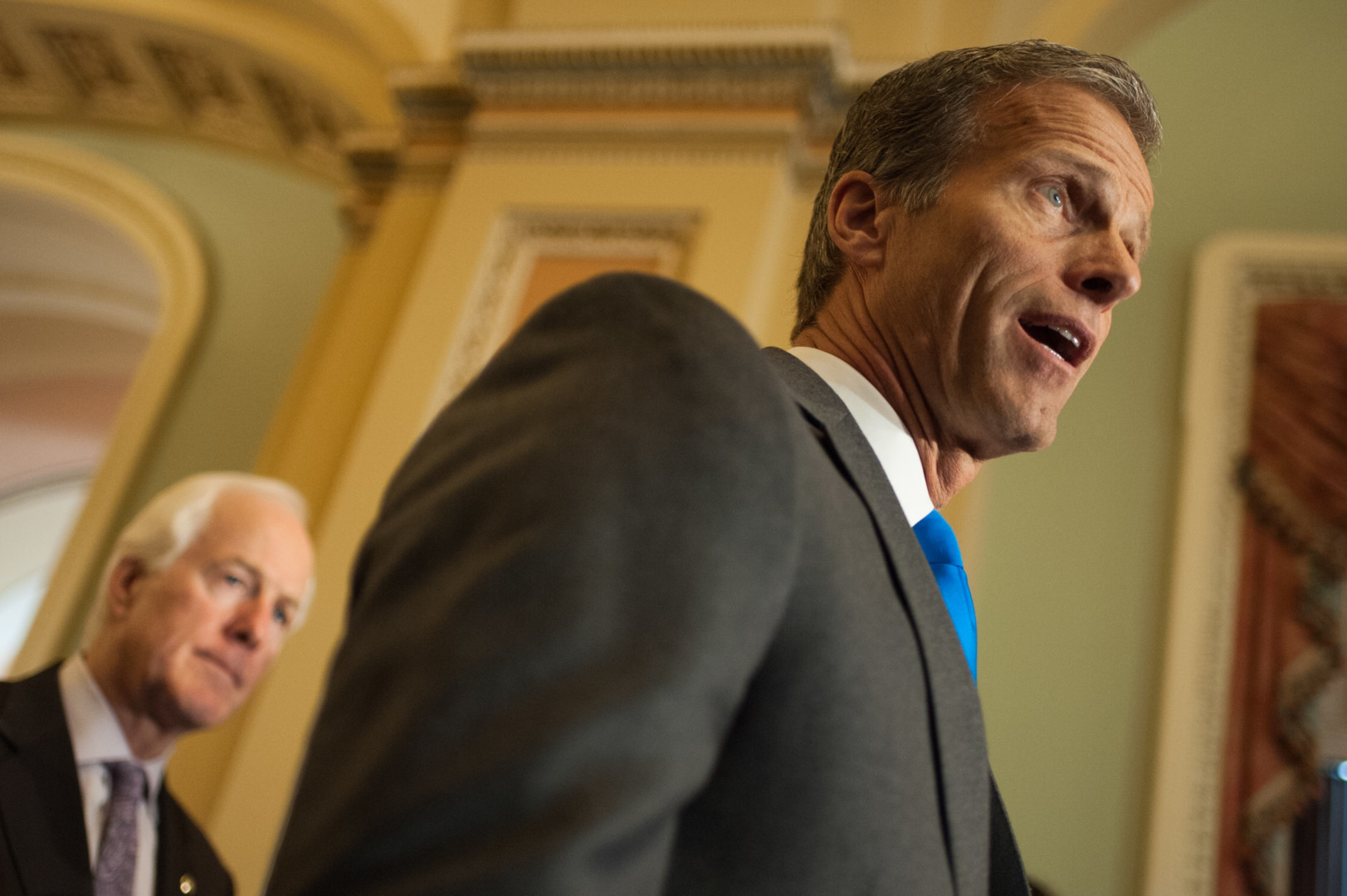The Senate on Wednesday easily passed a short-term funding extension for the Federal Aviation Administration that includes provisions to strengthen security and reduce waiting times at airport security lines.
“It’s a little more than a 14-month extension, but don’t let that fool you because it is going to put into permanent law bolstering security at our airports in order to help better protect us,” said Sen. Bill Nelson (D-Fla.), the lead negotiator for Senate Democrats. “In fact, it contains some of the most significant aviation security reforms that Congress has ever considered, and we’ve considered — as you can remember — a lot since the September 11, 2001.”
The legislation, which President Obama is expected to sign before FAA funding expires Friday, authorizes the agency through September 2017. It’s the only must-pass item on the agenda before lawmakers go home for the long summer recess.
The bill heightens the vetting of airport employees who operate in secure areas, expands the TSA PreCheck program and increases the number of bomb-sniffing dogs at airports, which helps speed up security lines. Senate Democrats sought to include the provisions in response to recent international terrorist attacks at airports.
The reauthorization also contains drone regulations and consumer protection provisions, including one that requires air carriers to refund passengers for lost and delayed baggage. Another provision requires airlines to seat minors next to his or her travel companion.
The final bill is a modest compromise between House and Senate lawmakers, who earlier this year proposed vastly different plans to reauthorize the FAA. As with any compromise, certain proposals sought by Democrats and Republicans were left out.
“There was definitely a lot of stuff left on the cutting room floor,” Commerce Committee Chairman John Thune (R-S.D.), the top GOP negotiator on the bill, told reporters Tuesday. “We did the best we could.”
Thune said he was pleased that many of the consumer protections made it into the final version.
House Transportation Committee Chairman Bill Shuster (R-Pa.), who introduced the House version in February, lobbied for a sweeping plan to shift the nation’s air traffic control system away from the federal government. That proposal proved too ambitious for Democrats and some influential Republicans, forcing Shuster to shelve it until the FAA reauthorization comes up again next fall. Democrats, meanwhile, hoped to include extensions for several clean energy tax credits in the bill. FAA funding was originally set to expire at the end of March, but Congress passed a stopgap measure to give House and Senate negotiators more time to hammer out a compromise.
Frustrating some lawmakers, the short length of the extension means that the more controversial issues are bound to come up again next year.
Sen. Jerry Moran (R-Kan.) accused House Republican negotiators of excluding bipartisan reforms to the aircraft certification process and contract towers as a political ploy to gain leverage for privatizing the air traffic control system. Shuster and other supporters plan to push to include the privatization plan in next year’s reauthorization.
“Apparently the reason these important reforms were excluded was so they could at a later date be used as a political bargaining chip,” the Kansas Republican said Wednesday on the Senate floor. “The House held these popular reforms hostage in an attempt to gain leverage and later promote an effort to privatize our national air traffic control system.”
Thune, who is holding out hope for a long-term FAA bill in the future, said the issues left out of this bill will be litigated again next year.
“Those are debates for another day, we did what we thought we could do, and I think the bill that we got was a strong one under the circumstances,” the South Dakota Republican told reporters. “But I frankly would be one who would love to see us think long term.”
He added that Shuster’s privatization plan would likely be a difficult push next year, especially in the Senate.
“I think the House believes that given enough time they can educate their members about this, but we’ll see, time will tell,” he said. “I would say it’s a very heavy lift in the Senate because there are members on both sides at this point that are skeptics.”

